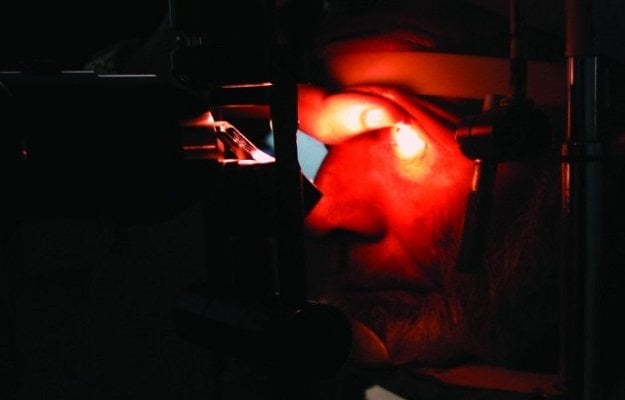
A driver by profession, the 60-year-old, who once lost his vision to cataracts due to which his family was deprived of his financial support, is now back to cruising the streets of Karachi. After receiving the free-of-cost eye surgery from Layton Rahmatullah Benevolent Trust (LRBT) hospital, Sattar donated Rs200 to the trust out of obligation and gratitude.

There are many like Sattar who are at present getting free eye care at one of the two LRBT hospitals in Karachi at Korangi and New Karachi. Established in 1984 by two businessmen, Graham Layton and Zaka Rahmatullah, with the aim of eliminating blindness from Pakistan, the chain of 18 hospitals and 55 clinics across Pakistan has treated 30 million patients so far.
According to the LRBT chairperson, Najmus Saquib Hameed, around 85 per cent of blindness cases are treatable. "There are an estimated 20 million people in Pakistan who need optical treatment," he said. "Our motto is that just because a person cannot afford the treatment, they should not be denied the right to live a meaningful life."
The two LRBT hospitals in Karachi receive an average of 1,100 patients daily. The emergency service, which is open 24 hours a day, is able to cater to all sorts of eye ailments. The hospital's treatment centres have been divided into three areas: screening, where minor to small ailments are diagnosed; ophthalmology centres; and sub-specialty centres for specialised ailments such as cataracts, glaucoma, squints, trabeculectomy, DCR and cornea transplants.
Pediatric eye care
Besides handling the day-to-day and intensive surgeries for adults, the hospital has its very own unit for children's eye care, along with a section for a play area. Chief opthalmologist Dr Fawad Rizvi said that one out of three children in Pakistan receive eye treatment through the services of LRBT across Pakistan.
The OPD of the hospital is able to cater to children coming in for small visual impairments or even the more serious and less-occurring issue of glaucoma. Speaking to The Express Tribune, Dr Safia Ilyas, an orthoptist in the paediatric section, said that the optical system normally matures in two years. "Squint is one problem that can be treated in children up to eight years of age. For other eye problems such as refraction, cataracts and glaucoma, it is advised that treatment is sought as early as possible," she said.
Dr Ilyas also pointed out that since eye surgeries were dealt with differently in children and adults, the former were usually admitted to the hospital for 72 hours after the surgery. "Children are taken care of with the help of general anesthesia. On average, 10 surgeries are conducted every day," she said.
Published in The Express Tribune, June 12th, 2015.

















COMMENTS
Comments are moderated and generally will be posted if they are on-topic and not abusive.
For more information, please see our Comments FAQ